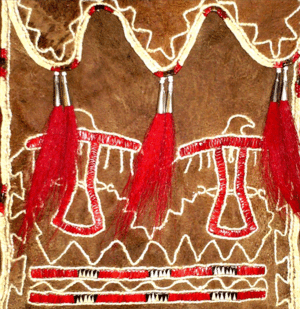Is your child always in the habit of pulling their hair? If you answered, “yes” then your child could have a disorder called, Trichotillomania. To help understand what is the cause of hair pulling in children and what you can do to help your child overcome hair pulling, I have interviewed psychologist Jennifer Horn.
Tell me a little bit about yourself.
“As a licensed clinical psychologist, I work exclusively with children/adolescents and their families. My clinical child psychology doctorate is from Southern Illinois University at Carbondale, and I have been providing comprehensive evaluations and treatment in Indiana for over 20 years. I find great enjoyment in working with children/teens and their families that are facing a variety of learning, behavioral, and emotional issues. Areas of specialty include anxiety disorders including hair-pulling, autism spectrum disorders, learning disorders, and ADHD.
What is the cause of hair pulling in children?
“Hair pulling, known as Trichotillomania, is a neurologically-based problem. The research is suggesting that it is more of an impulse control disorder than an anxiety disorder, although currently it is classified under anxiety disorders and similar to Obsessive-Compulsive Disorder. Studies have shown a genetic basis to hair pulling; it is not the result of bad parenting or a habit that got out of control. People with Trichotillomania will describe an urge to pull, snap, or twist their hair, with a physical release when they do so.”
What type of impact can hair pulling have on a child’s overall life?
“The most obvious impact is that people will notice hair missing, and this can lead the child to feel embarrassed. The child may try to hide their hair pulling, or to feel ostracized by peers. Children who pull are often misunderstood; for example, parents, teachers, and friends might get angry with them and tell them to stop pulling their hair. Permanent hair loss can occur when the hair is pulled repeatedly from one spot. Also, about 50% of hair pullers eat their hair as part of the pulling ritual, and the ingestion of the hair can lead to significant gastrointestinal problems.”
How can a parent help their child overcome hair pulling?
“Studies have unfortunately shown that hair pulling is very difficult to stop. Telling the child to stop, putting coverings on their hands, or giving rewards/punishments when they do or do not pull don’t work well and often increase the child’s shame about having this neurobiological disorder. Parents should seek a professional who has experience working with children who have Tichotillomania and has kept up with the research findings. Medication is unhelpful and is not an effective treatment approach. The most effective treatment, working about 60-75% of the time, is a modified Cognitive-Behavioral approach that addresses various aspects of the urge to pull.”
Thank you Jennifer for doing the interview on how a parent can help their child overcome hair pulling. For more information on Jennifer Horn or her work you can check out her website on www.BeaconIndiana.com.
Recommended Readings:
Trichotillomania: Hair Pulling Disorder
Teaching Children Not to be Victims of Bullies
How to Listen to Your Child


